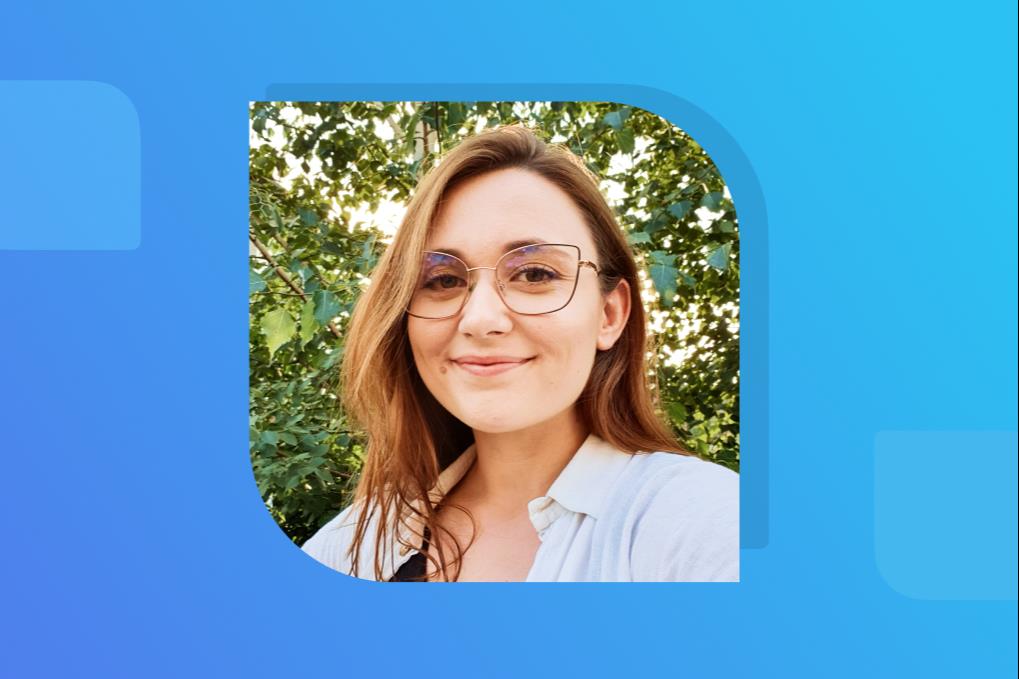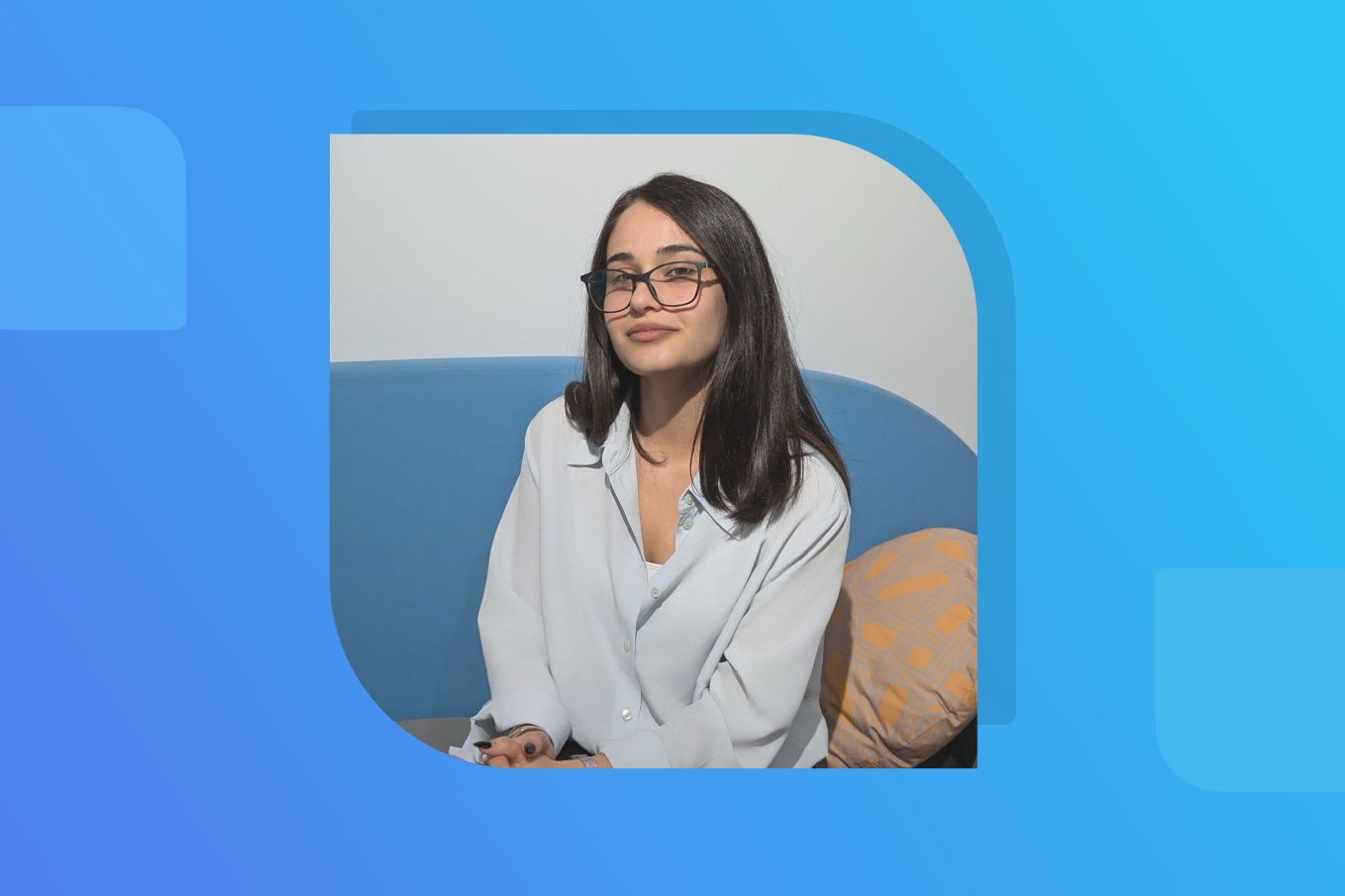Our colleague from Almaty, Almas Zaurbekov, joined the company in the fall of 2020. Almas knew about EPAM Kazakhstan in 2018 when an ambitious second-year student first heard about the company at a hackathon in Nazarbayev University. This article tells you how a student becomes a Junior Software Engineer in two years.
The hackathon is a great place to get to know IT for the first time. When hundreds of developers from all over the world get together to solve a considerable problem in a short time, this place becomes full of creative energy. Then I was in my second year, and my technical skills were only enough for setting up databases and writing different algorithms. I was in a team with the guys who already did the masters, so we had a chance to win. Problems are usually defined by the competition sponsors, who need either ready-made solutions or new ideas. Among the sponsors of that hackathon were such companies as BTS Digital, Microsoft, Google, CAICA, and, of course, EPAM. We decided to solve the EPAM task of developing a web application for online book reservations.
Our MVP application fulfilled its function quite well: storing reservation history, visualizing books location, etc. However, we did not manage to win the hackathon, as we used only one Amazon database to a limited extent. The winner was the team with a more convenient solution as they read the QR code of the book and immediately displayed the data on the website. However, we were the only team that somehow managed to get through to the Amazon data. I think this is how we grabbed the attention of Eugene Svalukhin, the EPAM representative, who decided to award us with a prize certificate.
After the presentation, our team was invited to visit the EPAM Kazakhstan office in Nur-Sultan. Then I had the feeling that I was starting a new life, and I caught myself thinking that I had been to an office that I want to come back to every day.
After returning to my native city Almaty, I was on the rise and decided not to delay my dream. I immediately applied for the Web Development ASP.NET training. I didn't think about choosing a direction for a long time because I knew that I was good at developing web applications in .NET and Python. I decided to stop at .NET because I like working with Microsoft products.
The training took place in Karaganda, but this did not stop me. I would say if the next enrollment for the .NET course opened not in Kazakhstan, but in any other country, I would go there without hesitation. I was so burning with a dream and wanted to get a job at EPAM.
Having applied for the training, I received an invitation for a remote interview. I already had interview experience, so I prepared carefully. First, they checked my technical knowledge, then my level of English. Of course, I was worried because my dream was at stake. However, everything went well. At the end of the interview, I knew about my strengths and weaknesses. Also, they recommended me to improve my English so I could work on international projects in the future.
If you have your first interview coming up, I recommend searching the Internet for the most common technical questions. This will help you review basic knowledge and worry less. The questions can vary, but if you are a future web developer, most likely, you will be asked about JavaScript, REST API, and HTTP protocols. They can ask questions about the database, ask what normalization and transaction are, and ask about OOP, design patterns, etc.
After a successful interview, I entered the external laboratory of EPAM in the Karaganda office. I caught myself thinking that my journey to the company began in the country's capital and led to Karaganda. I wondered what would happen next. During my studies, I received a huge bundle of knowledge, made friends with colleagues, and learned to solve problems of different complexity. I would like to mention my mentors Aleksey Ushakov and Ivan Popov. They are real professionals in their field, very smart, moderately demanding, and most importantly, I felt one hundred percent support from each of them. I saw a difference in approaches and the quality of the acquired knowledge in comparison with the university. During the training, I got a chance to implement my own project.
A mentoring program is one of the best ideas of EPAM because the instant feedback and code review is very good for showing students the right direction. There are no clear rules on how and what you should do. I chose my project and coding style. Of course, there are some rules that I had to adhere to, but in general, a mentor is strict only when necessary.
The training was supposed to last three months, but I had problems at the university. I did not receive distance learning, so I had to return to Almaty. The coordinators gave me a favor and offered to defend the project at home. I was pleased that they treated my situation with understanding. If you are still in the laboratory, you are already halfway through, and you will most likely get to the end and go to the company. Just keep improving your knowledge and keep trying. There is no such thing that someone does not like you, and therefore you will not be accepted into the company. The atmosphere on the course is friendly, everyone supports each other and helps to cope with tasks.
After training, I was waiting for a Job Offer. I realized that I already knew a lot about the company and firmly decided that was the place I wanted to develop and grow professionally. Finally, I had the opportunity to get to know the EPAM professionals who created the future technology at the EPAM Insider Kazakhstan conference. I listened attentively to every word of my future colleagues. Karim Kanatov told us about big data analysis. Also, there was a speech about cloud computing on AWS. However, most of all, I liked the presentation on gamification by Ayazhan Kuketayeva. Since the conference, I wanted to become part of EPAM even more.
I entered the training program in June 2019, but I managed to finish it only in March 2020. Due to the pandemic, I did not get the Job Offer as soon as I expected. The good news that I was invited for an interview in August. Since September, I have been officially working at EPAM as a Junior Software Engineer. From beginning to end, the employment took two years. Now I work with Power Platform and Azure DevOps, although all this time I have been preparing to write code in C# and work with .NET technologies. I do not see any problem with that, I am trying to apply the knowledge gained, and I am excited about working on the project. I was afraid that, finally, my tasks would turn into a routine, and I would burn out. But already at the training stage, I understood that EPAM has many projects and technologies, and you can always find something that will be interesting for you. The main thing is to look for it!








